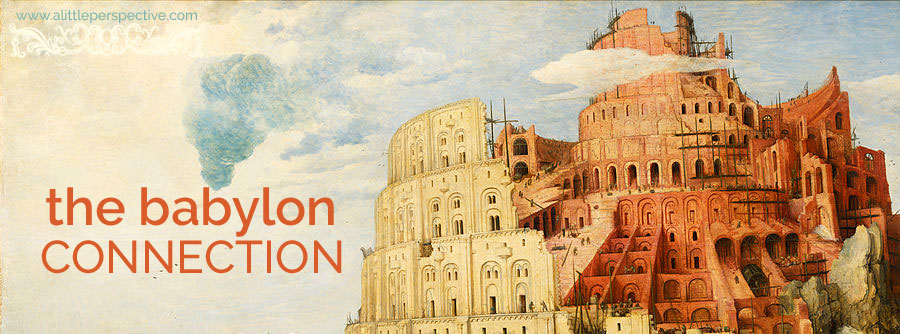the babylon connection
the babylon connection, part two
the babylon connection, part three
the babylon connection, part four
the babylon connection, part five
the babylon connection, part six
the babylon connection, part seven
the babylon connection, part eight
the babylon connection, part nine
the babylon connection, part ten
We last time looked at the evidence that Bryant brought out that Ham was worshiped as the sun god by his posterity. Now let us look at the evidence concerning Cush, the son of Ham. He was the father of Nimrod, who instigated the Tower of Babel rebellion. The Greeks called him Chusus, or Chus-Or, which was a favorite epithet among the Greek poets for Apollo, the Greek sun deity (see notes to Iamblichus by Gale, p. 301). The Grecian temples dedicated to him were called Chrusaoria after this title.
“Chus, in the Babylonish dialect, seems to have been called Cuth; and many places, where his posterity settled, were styled Cutha, Cuthaia, Cutaia, Ceuta, Cotha, and compounded Cothon [Cuth-On, or Cush the Sun, just as Am-On was Ham the Sun). Chusistan, to the east of the Tigris, was the land of Chus: it was likewise called Cutha, and Cissia, by different writers. A river and region, styled Cutha, mentioned by Josephus (Antiquities 1.9. c.14. n.3) the same which by others has been called Cushan, and Chusistan. The harbor at Carthage was named Cothon according to Strabo (1.17.p.1189). Also, an island in that harbor (Diodorus Sic. 1.3.p.168). He was sometimes expressed Casus, Cessus, Casius; and was still further diversified. Chus was the father of all those nations styled Ethiopians (Josephus Antiquities 1.1.c.6), who were more truly called Cuthites, and Cuseans. They were more in number, and far more widely extended, than has been imagined. The history of this family will be the principal part of my inquiry.”
Bryant, Ancient Mythology vol. 1., Radicals, p. 6-7.
Why would a harbor in Carthage be named after Cush? The Carthaginians were Phoenicians, as Carthage was a Phoenician colony. The Phoenicians were named thus by the Greeks; it means “purple men,” because in the principal cities of the Phoenicians on the coast of the Mediterranean — Sidon, and Tyre — they were famous for a purple dye which they extracted from the murex seashell. But this people called themselves the Kenaani, or Canaanites (The Phoenicians, Pamela Odijk, 1989). Scripture confirms that the Phoenicians were indeed Canaanites (and here). Canaan and Cush were brothers, both the sons of Ham, but Cush, and Nimrod, appears to have had the ascendency in the Hamite family.
More on Canaan next time …
the babylon connection, part twelve
the babylon connection, part thirteen
the babylon connection, part fourteen
the babylon connection, part fifteen
the babylon connection, part sixteen
